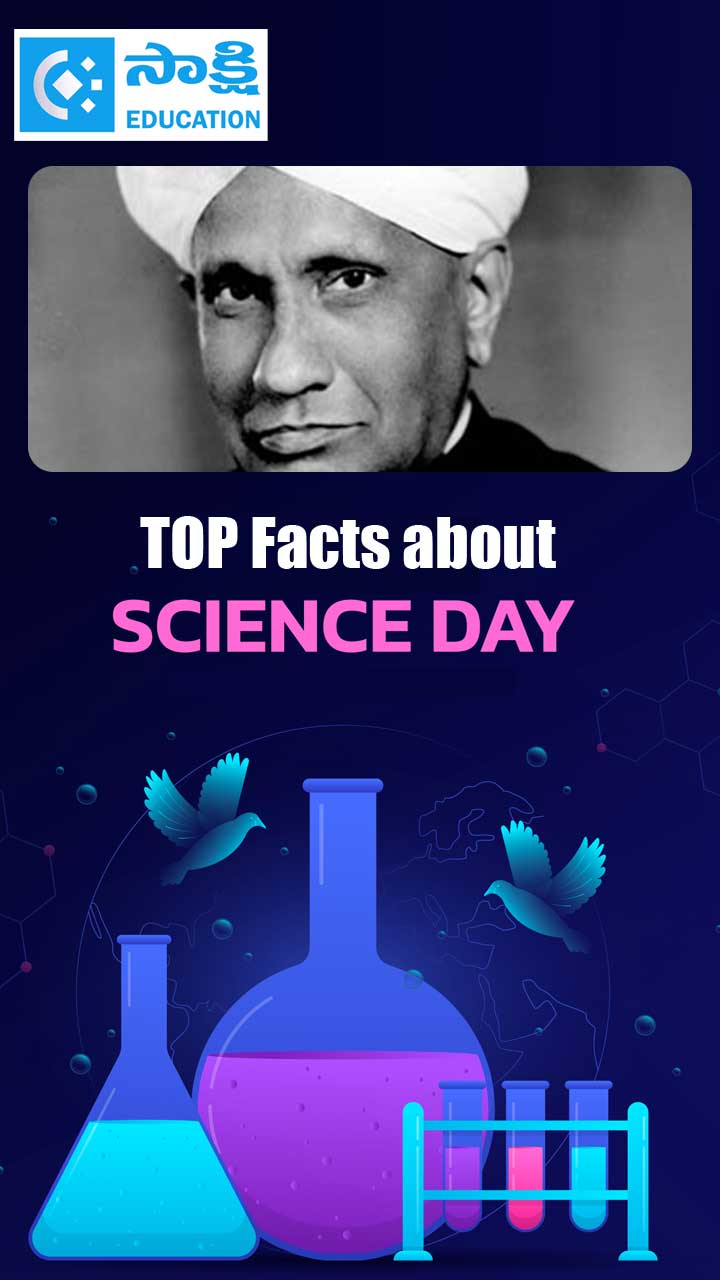Interview with Honorable Prof. Narayanaswamy Satyamurthy, Director IISER, Mohali
Sakshi Education

Science is devoted as the language of nature, it is considered as the key to understand the principles of nature and enhance living standards of the society. We all know that many scientists like Sir C.V.Raman, Sir Dr. J C Bose, Isaac Newton, Sir Thomas Elva Edison, Albert Einstein, and Archimedes etc. scientific discoveries have driven their inspiration from nature. The 19th century has evidenced one of the finest discoveries and innovations in the field of science all round the world including India. During this period India has produced one of the finest scientists of the world, to name a few: Sir C.V.Raman, Dr. J C Bose, Dr. Mokshagundam Visvesvaraya, Dr.C.V.Rao, etc.. But in the recent years there has been drastic drop down of number of scientists produced by india in the field of science, which has been much spoke all round.
To present extensive analysis on this situation, we have with us Prof. Narayanaswamy Satyamurthy, Director IISER, Mohali, to help us understand the proximity of the problem and provide us the necessary steps, with his vast experience and vision to make India as one the best scientific hub in the world.
Prof. Narayanaswamy Satyamurthy, the founding director of the Indian Institute of Science Education and Research (IISER), Mohali, Punjab, India. He obtained his Ph.D degree at Oklahoma State University in 1975. He further carried out postdoctoral research in nobel laureate J.C.Polanyi's laboratory. After that Sathyamurthy joined the Indian Institute of Technology Kanpur as a lecturer in 1978. Sathyamurthy became a professor in 1985.
Sir, what is your opinion on Science education in India?
Science and Science education had major contribution towards development of country. We had great scientists decades ago who contributed a large for society. During the Golden Era of Physics, India contributed its share. It had C V Raman, S N Bose and M N Saha. Even before that, J C Bose had made outstanding discoveries. In present competitive scenario, Independent India wanted to catch up with the rest of the world.
What is the importance of Science education compared to other academics?
Frankly to say, only to answer this question many examples should be given. After post independent era Pandit Jawaharlal Nehru realised that the salvation for the newly born Nation would come only through the development of Science in the country. By this thought CSIR laboratories were set up. In the same way, H J Bhabha helped to set up the Atomic Energy establishment. Later, Vikram Sarabhai helped India advance in space technology.
Many students are crazy about Engineering as well as passionate to seeking admission in IITs? How can you opine this situation?
Even success of IITs came through study of Science. But people do not realize this. The IITs contributed their bit for science education and science development in the country. Unfortunately, Indian universities fell behind, way behind. The Nation could not wait for the universities to turn around. Therefore, the IISERs were created. They were created such that they would be at the forefront of science. The government decided to fund them as it had never done before.
What is your opinion on present student community and suggestions to science education aspirants?
Indian students are bright. They are hard working, if they want to. They became success stories in Silicon Valley and elsewhere. They have the potential as everybody acknowledges. Alas, they have been wasting their talents in trivial pursuits.
What is your opinion on institutes’ views on developing science education?
The country needs to improve the academic environment and the infrastructure in the field of Science at university level itself. It is a mammoth undertaking, but worth it.
What are your suggestions to students for continuous growth towards career and higher education?
It is a pursuit that never ends. A pursuit that will make you discover things, discover for the sake of discovering. Even the logo of IISER Mohali that says, “In pursuit of knowledge.”
What is the main objective for setting up of IISERs?
ISERs were created on the recommendations of Prof. C.N.R. Rao for research and education in basic sciences. For which, industry- institution interaction have major role. When the patented research output with social impact is considered worthwhile by the commercial units, they collaborate with research institutions.
What are the recent initiatives by IISER – Mohali with regard to R&D?
We have been setting up separate centers for R&D. For example recently The Nuclear Magnetic Resonance (NMR) research facility was inaugurated on the new campus to open up new horizons for inter-disciplinary research ranging from structural biology to quantum computing.
In Science and technology, infrastructure plays key role, unfortunately which we have been lacking. What are your opinions on this?
The IISER academic curriculum is one that encourages research and lab activity. For this lot of facilities were established in all IISERs.
So many parents and students feel that pursuing science career is very long term. What are your suggestions in this regard?
As per my knowledge, still today so many students have interest in pursuing science education. Unfortunately a child's curiosity in Science is killed at a young age by parents who are intent on disciplining them and by an educational system that encourages them to learn by rote and study for multiple-choice questions. There is a need to encourage curiosity among them at school level itself.
To present extensive analysis on this situation, we have with us Prof. Narayanaswamy Satyamurthy, Director IISER, Mohali, to help us understand the proximity of the problem and provide us the necessary steps, with his vast experience and vision to make India as one the best scientific hub in the world.
Prof. Narayanaswamy Satyamurthy, the founding director of the Indian Institute of Science Education and Research (IISER), Mohali, Punjab, India. He obtained his Ph.D degree at Oklahoma State University in 1975. He further carried out postdoctoral research in nobel laureate J.C.Polanyi's laboratory. After that Sathyamurthy joined the Indian Institute of Technology Kanpur as a lecturer in 1978. Sathyamurthy became a professor in 1985.
Sir, what is your opinion on Science education in India?
Science and Science education had major contribution towards development of country. We had great scientists decades ago who contributed a large for society. During the Golden Era of Physics, India contributed its share. It had C V Raman, S N Bose and M N Saha. Even before that, J C Bose had made outstanding discoveries. In present competitive scenario, Independent India wanted to catch up with the rest of the world.
What is the importance of Science education compared to other academics?
Frankly to say, only to answer this question many examples should be given. After post independent era Pandit Jawaharlal Nehru realised that the salvation for the newly born Nation would come only through the development of Science in the country. By this thought CSIR laboratories were set up. In the same way, H J Bhabha helped to set up the Atomic Energy establishment. Later, Vikram Sarabhai helped India advance in space technology.
Many students are crazy about Engineering as well as passionate to seeking admission in IITs? How can you opine this situation?
Even success of IITs came through study of Science. But people do not realize this. The IITs contributed their bit for science education and science development in the country. Unfortunately, Indian universities fell behind, way behind. The Nation could not wait for the universities to turn around. Therefore, the IISERs were created. They were created such that they would be at the forefront of science. The government decided to fund them as it had never done before.
What is your opinion on present student community and suggestions to science education aspirants?
Indian students are bright. They are hard working, if they want to. They became success stories in Silicon Valley and elsewhere. They have the potential as everybody acknowledges. Alas, they have been wasting their talents in trivial pursuits.
What is your opinion on institutes’ views on developing science education?
The country needs to improve the academic environment and the infrastructure in the field of Science at university level itself. It is a mammoth undertaking, but worth it.
What are your suggestions to students for continuous growth towards career and higher education?
It is a pursuit that never ends. A pursuit that will make you discover things, discover for the sake of discovering. Even the logo of IISER Mohali that says, “In pursuit of knowledge.”
What is the main objective for setting up of IISERs?
ISERs were created on the recommendations of Prof. C.N.R. Rao for research and education in basic sciences. For which, industry- institution interaction have major role. When the patented research output with social impact is considered worthwhile by the commercial units, they collaborate with research institutions.
What are the recent initiatives by IISER – Mohali with regard to R&D?
We have been setting up separate centers for R&D. For example recently The Nuclear Magnetic Resonance (NMR) research facility was inaugurated on the new campus to open up new horizons for inter-disciplinary research ranging from structural biology to quantum computing.
In Science and technology, infrastructure plays key role, unfortunately which we have been lacking. What are your opinions on this?
The IISER academic curriculum is one that encourages research and lab activity. For this lot of facilities were established in all IISERs.
So many parents and students feel that pursuing science career is very long term. What are your suggestions in this regard?
As per my knowledge, still today so many students have interest in pursuing science education. Unfortunately a child's curiosity in Science is killed at a young age by parents who are intent on disciplining them and by an educational system that encourages them to learn by rote and study for multiple-choice questions. There is a need to encourage curiosity among them at school level itself.
Published date : 27 Oct 2014 05:54PM


















